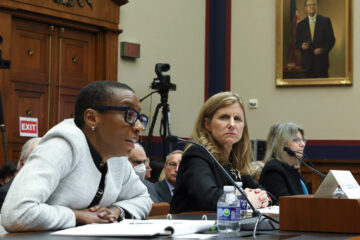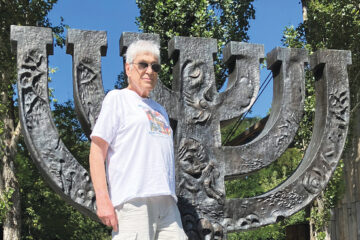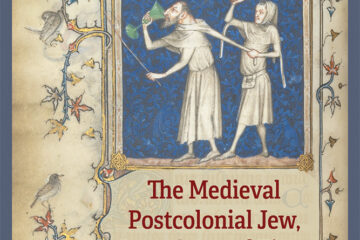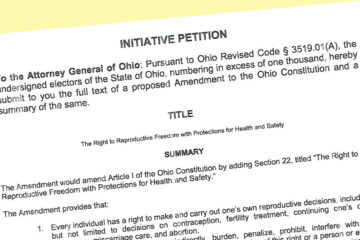Am I a Jew?
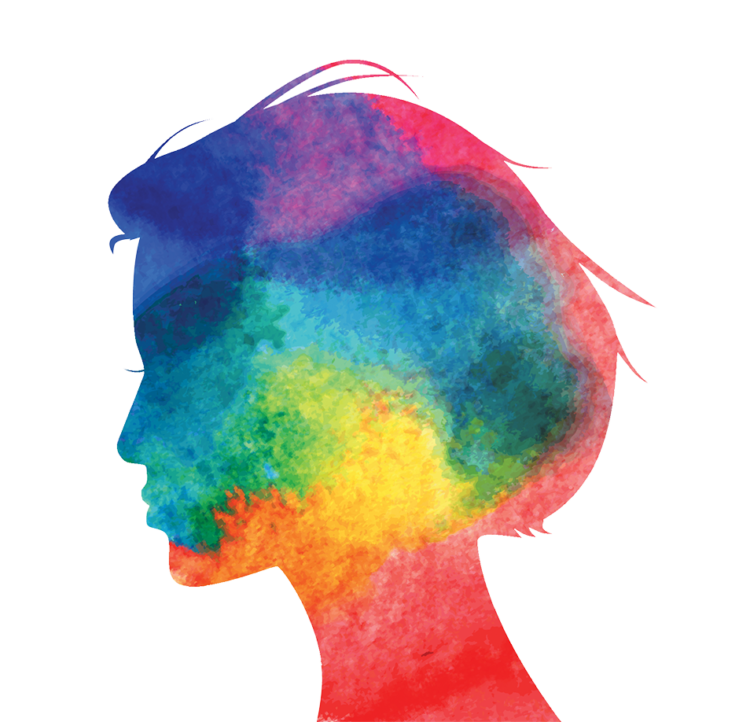
By Hannah Kasper Levinson
I have a question that has guided me and confused me through so much of my life.
Am I a Jew?
I know that according to Jewish law, I am Jewish, since my mother is Jewish. But am I Jewish enough? I wonder this every Friday night, at holiday gatherings, when I volunteer, at work.
Since I married my husband, and even more so since I moved to Dayton, I feel more comfortably part of this extended Jewish family, but that hasn’t stopped me questioning my place in it. Could this questioning be part of what defines my Judaism?
Religious traditions were not part of my upbringing. My family didn’t belong to a synagogue. I never had a bat mitzvah, and I don’t understand Hebrew.
On the flip side, I was proud to grow up a Jewish New Yorker. Yiddish words were sprinkled in our conversations at home, I loved my mom’s Eastern European-inspired cooking, I watched her with somber curiosity as she lit yahrzeit candles. And I was defensive, ready to fight anyone I felt was uttering an antisemitic sentiment.
But it’s more complex than the religious vs. cultural debate. It’s tricky to try to describe the nuances that sculpt a family. It’s much easier to say “I’m Jewish” than to explain my mother is a Jew from the Bronx and my dad was raised Catholic.
Should I mention that I observed my grandmother whispering the rosary at night? That my great aunt the nun lived in a convent I loved visiting because they grew their own food and had a tiny museum of Lithuanian amber?
I’m often met with blank stares when I share these anecdotes with members of the Jewish community. My imposter syndrome starts to set in.
I was named after the German Jewish philosopher Hannah Arendt. In the 1930s, Arendt became a political activist, working with the German Federation of Zionists and rescuing Jewish children from the Third Reich. She was arrested in Germany and later interned in France.
In 1941 she immigrated to America where she wrote for various Jewish publications, published her influential books, and established herself as an American intellectual.
In Arendt’s most controversial book, Eichmann in Jerusalem (1963), she originated the idea of “the banality of evil.”
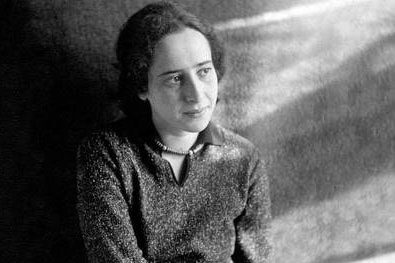
The Eastern European Jewish tradition would have you name your child after a deceased relative. My folks decided to have me walk in the footsteps of a woman who theorized that there could have been more done to prevent 6 million deaths had the victims been more politically active and not taken “the banality of evil” for granted.
The architect of the Final Solution, Arendt claimed, was a bureaucrat, and not an ideologue. Arendt’s ideas may be uncomfortable, and yet the concept of the banality of evil was eerily prescient when we watch the horrors now unfolding before us, from extremist right-wing groups in the U.S. and Europe, to Putin’s war against Ukraine, to domestic terrorism in our country.
It’s only recently that I’ve started thinking about why my parents chose my namesake. I’ve never asked, but I can guess it’s because she was fiercely intellectual and brave, in a way I can only imagine.
Her relationship to Judaism, though complex, was unmistakably central to her identity.
My parents are pragmatic, critical, and individualist. As children in the 1940s, they both lost their fathers and were raised by single mothers. They pursued their education and moved to Manhattan in the ‘60s. They love to tell me that in the ’70s, they were both teaching where “the Bronx was burning.”
My parents married and had children later than most in their generation. They grew up poor, left home, and married outside their faith, ultimately choosing to reject religion.
When they had children, they put their heads together and decided that when it came to religion, it was better not to decide. My brother and I would find our own paths.
Their approach to parenting would be laissez faire: letting things take their own course.
I can’t help being influenced by them, to admire their individualism, and to carry that into my sense of what it means to be a creative individual.
The thing is, no matter how much I respect my parents, I have yearned since childhood for a sense of belonging to a greater community, and it wasn’t until I met my husband that I started to embrace and explore the role of Judaism in my identity.
You would think that spending my 20s and 30s in Brooklyn would have made it easy to find a Jewish community with which I could relate.
I suppose the closest version was Secular Humanist Judaism. My husband and I tried a pop-up synagogue that described itself as “an artist-driven, everybody-friendly, God-optional, experimental community for sacred Jewish gatherings.”
We went for holidays to a house in South Brooklyn with potluck dinners where it was OK to be “Jew-ish.”
We joined The Workers Circle, hoping to get more involved with the social justice aspects of Judaism, but everyone worked too much and no one ever wanted to get together for Shabbat.
I kind of loved all those places, but it was all a little vague and noncommittal. I never found my group or an especially firm sense of Jewish acceptance in New York City.
Everyone seemed to have it figured out, because they grew up Conservative, or Reform, or whatever, and they knew exactly what it was they were supposed to embrace or rebel against.
Who gets to decide if you’re Jewish enough? Is it a higher being, those who came before you, the community? What if the deciding entity is not there to speak for you?
If your definition of being Jewish is holding faith in a certain higher being, I don’t fit your ideal.
If it is questioning what defines faith, an inexplicable feeling of connection to the past, and a desire to build community, then I may find my place.
Still, is this enough? My husband has listened to me debate myself on this matter so many times throughout our years together. He has gently tried to convince me that I’m my own worst enemy, that no one is judging me, and that there are multiple ways to be Jewish.
How is a child molded into who they become when they are raised outside of tradition? My parents chose to walk their own path and I was free to follow or find my own way.
Some would argue you will be lost without a set of tenets to live by. I know that’s not true. I live by a strong moral code and am raising my children with intent.
Still, there might be a reason why I don’t have the confidence to say out loud, “I belong,” and believe it. We need a larger community outside ourselves, for so many reasons, both practical and existential.
So I’m working on it. I’m looking for the balance between individualism and the idea that I’m a puzzle piece in a cultural jigsaw.
My husband and I are raising our children with Jewish traditions and holidays, while I teach in a Jewish school.
We’ve had some lovely Friday nights with our havurah of new friends. I’m trying to give our kids the sense of belonging that I yearned for, while encouraging them to respectfully question what they are taught, and to make their own decisions as they grow.
Am I a Jew?
It seems no one can really answer this but me.
Hannah Kasper Levinson teaches art at Hillel Academy of Dayton.
To read the complete July 2022 Dayton Jewish Observer, click here.


